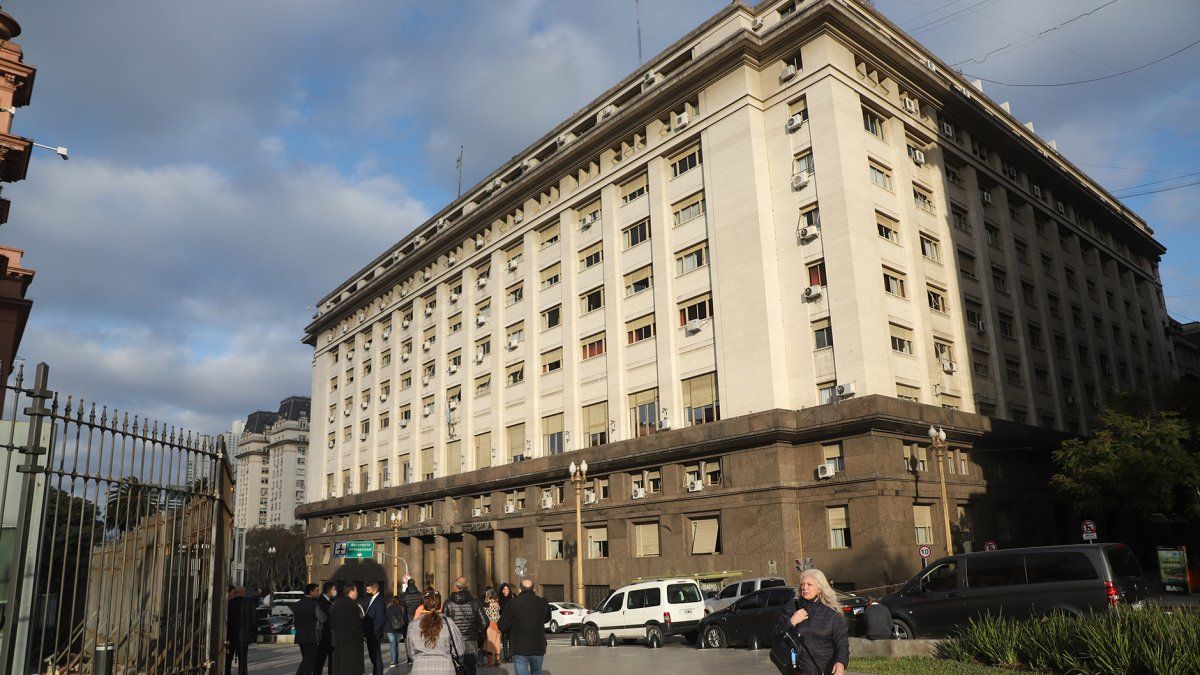In that context, Starting in January 2023, he will have to go out looking for an average of $1 billion every month until September. By that time, when the presidential campaign is already launched, the political context will play a crucial role.
None of this escapes potential investors, both local and international, who will be seen throughout this week by Economy Minister Sergio Massa, who will begin a tour of Washington to speak with officials from the International Monetary Fund (IMF). and through Houston, where he will have an appointment with entrepreneurs from the energy sector.
Massa has to give certainty to his interlocutors that he will be able to sustain this expiration programor because it obtains the pesos in the market or because it enables swap operations to dispose of part of those commitments by 2024. This is what market analysts defined as the “wall effect”.
According to a detail published by the consulting firm Equilibra, in January 2023 the commitments amount to $1 billion; in February, to $775,000 million; in March, to $1.8 billion; in April, to $1.18 billion; in May, to $773,000 million; in June, to $1.1 billion; in July, to $1.8 billion; in August, to $1.9 billion; and in September, to $1.35 billion.
Equilibra points out that maturities in the remainder of 2022 “total $1.9 trillion concentrated in the last two months.” “Of that total, some $700,000 million would be concentrated in private hands”, add the report. The consultant considers that during September and October the government will be able to obtain the net amount to cover the November and December maturities.
But the private report warns that “problems could return” because “next year has seven months in which there are scheduled maturities of more than $1 billion,” whate is going to continue putting pressure on the rate and feeding the idea of some rescheduling to the extent that the new commitments are left for the next presidential term.
In accordance with the commitment signed by the former Minister of Economy, Martín Guzmán, with the IMF, the monetary financing of next year’s fiscal deficit will be reduced to 0.6% of GDP. In 2023, the red cash balance of public accounts will have to be reduced to 1.9% of GDP, so Massa will have to obtain financing in pesos for 1.3 points, in a context of GDP growth of around 3% per year and inflation similar to this year.
That’s why, the markets await with expectation the presentation of the advance payment of the 2023 Budget project that will have to reach the Chamber of Deputies this September 15, as it does every year. The first signals about the economic program will emerge from there, now with Gabriel Rubinstein in the Programming Secretariat. the official rejected just a week ago an “imminent devaluation”, but analysts consider that the economic team hopes to sort out the macroeconomic variables in order to later move forward with a modification of the exchange rate in a more orderly environment.
Source: Ambito
David William is a talented author who has made a name for himself in the world of writing. He is a professional author who writes on a wide range of topics, from general interest to opinion news. David is currently working as a writer at 24 hours worlds where he brings his unique perspective and in-depth research to his articles, making them both informative and engaging.




